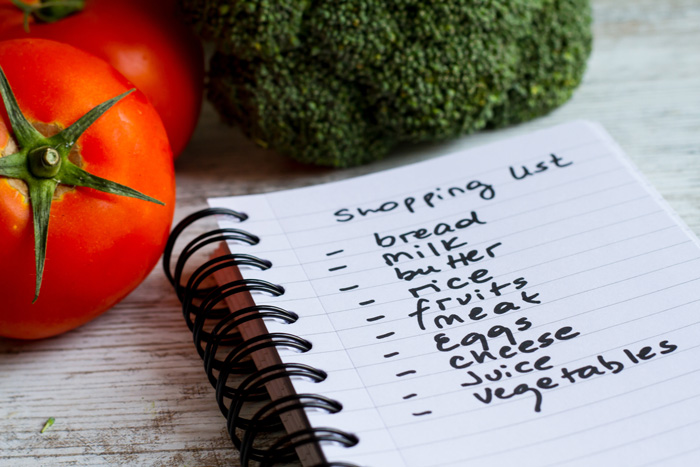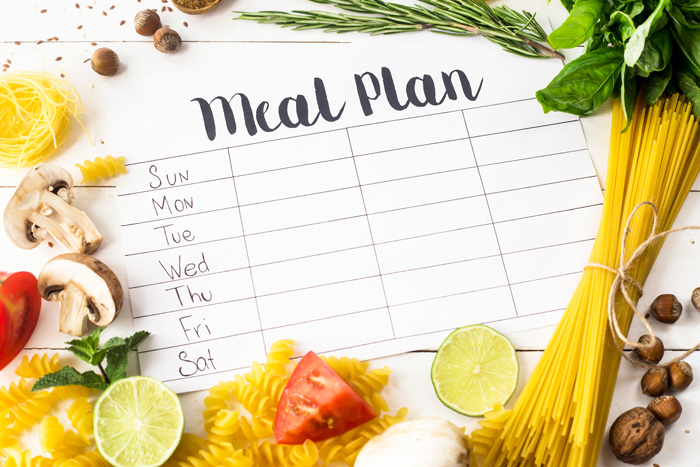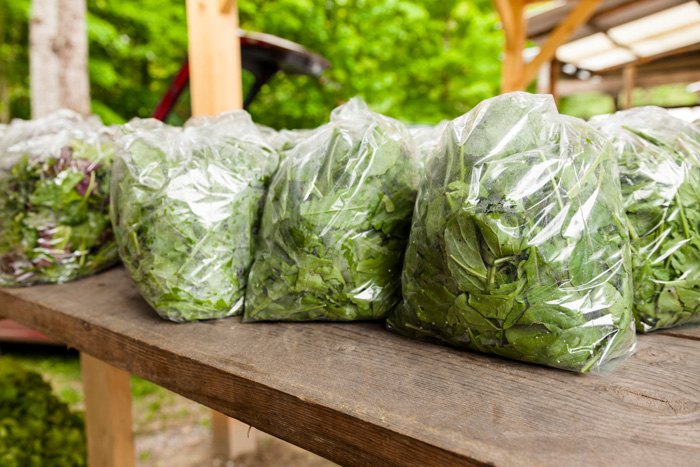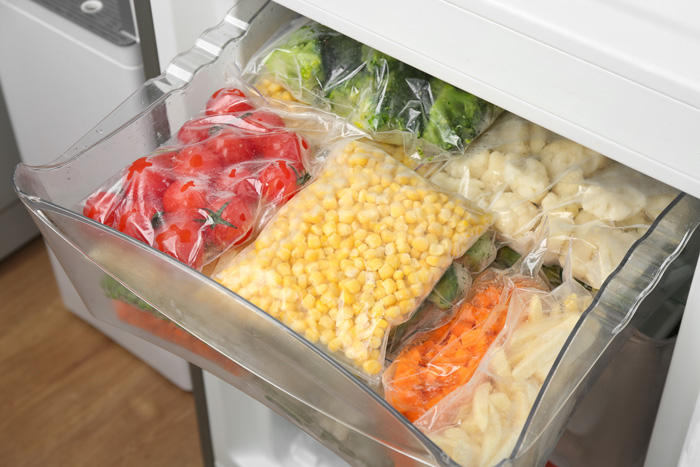Did you know that food waste contributes to toxic landfill emissions? Uneaten, disposed-of food breaks down and releases methane gas. Here are a few tips to limit food waste and greenhouse gases.
Buy only what you need and be sure to consume it in a timely manner
Make a shopping list before heading to the store or buying online. This will help to limit impulse buys and therefore will limit waste.
Make a shopping list before heading to the store or buying online. This will help to limit impulse buys and therefore will limit waste.

Make a meal plan for the week
Write down specific meals you intend to cook before purchasing food. This will ensure you get everything that you need at the store and nothing you don’t. It’s also a great way to use up what you already have on hand.
Write down specific meals you intend to cook before purchasing food. This will ensure you get everything that you need at the store and nothing you don’t. It’s also a great way to use up what you already have on hand.

Buy local
When possible, support your local farmers by purchasing local produce, meats, and even packaged products. Not only is it a great way to help your community, it reduces the need for transported goods. Community Supported Agriculture (CSA) boxes are a great way to support local farms while still maintaining social distancing guidelines.
When possible, support your local farmers by purchasing local produce, meats, and even packaged products. Not only is it a great way to help your community, it reduces the need for transported goods. Community Supported Agriculture (CSA) boxes are a great way to support local farms while still maintaining social distancing guidelines.

Master your food storage
Freeze-drying produce or keeping perishable items in a dry and cool location can help to keep food fresher for longer periods of time. Utilize your pantry and keep it organized so you are aware of what you already have before shopping.
Freeze-drying produce or keeping perishable items in a dry and cool location can help to keep food fresher for longer periods of time. Utilize your pantry and keep it organized so you are aware of what you already have before shopping.

Revisit composting regulations
Organic and natural foods can be composted and used as soil boosters. Compost is a great way to rid yourself of food waste without contributing to methane gas build up. Remember, produce can be composted, but meats and cheeses should be disposed of separately.
Organic and natural foods can be composted and used as soil boosters. Compost is a great way to rid yourself of food waste without contributing to methane gas build up. Remember, produce can be composted, but meats and cheeses should be disposed of separately.

Find eco-friendly ways to grill
Consistently cleaning outdoor grills to remove grease can prevent unnecessary smoke from rising. Using clean-burning propane or natural lump charcoal can aid in limiting negative environmental impact from outdoor barbecuing.
Consistently cleaning outdoor grills to remove grease can prevent unnecessary smoke from rising. Using clean-burning propane or natural lump charcoal can aid in limiting negative environmental impact from outdoor barbecuing.

Try your hand at gardening
Growing your own produce provides a fun and rewarding hobby, while also saving money at the grocery store. We encourage you to look into ‘drought-tolerant’ plants, as these items can survive with minimal water consumption. You can also grow your own kitchen herbs by following these guidelines: How To Grow an Herb Garden
Growing your own produce provides a fun and rewarding hobby, while also saving money at the grocery store. We encourage you to look into ‘drought-tolerant’ plants, as these items can survive with minimal water consumption. You can also grow your own kitchen herbs by following these guidelines: How To Grow an Herb Garden


